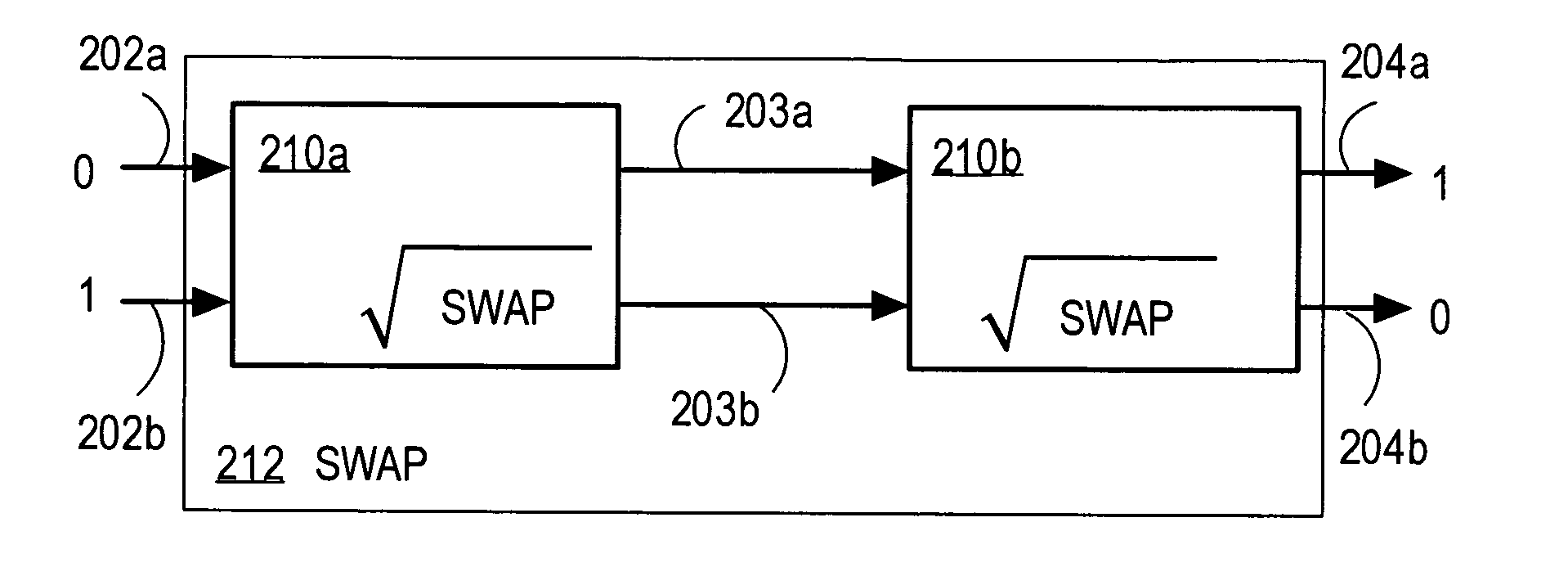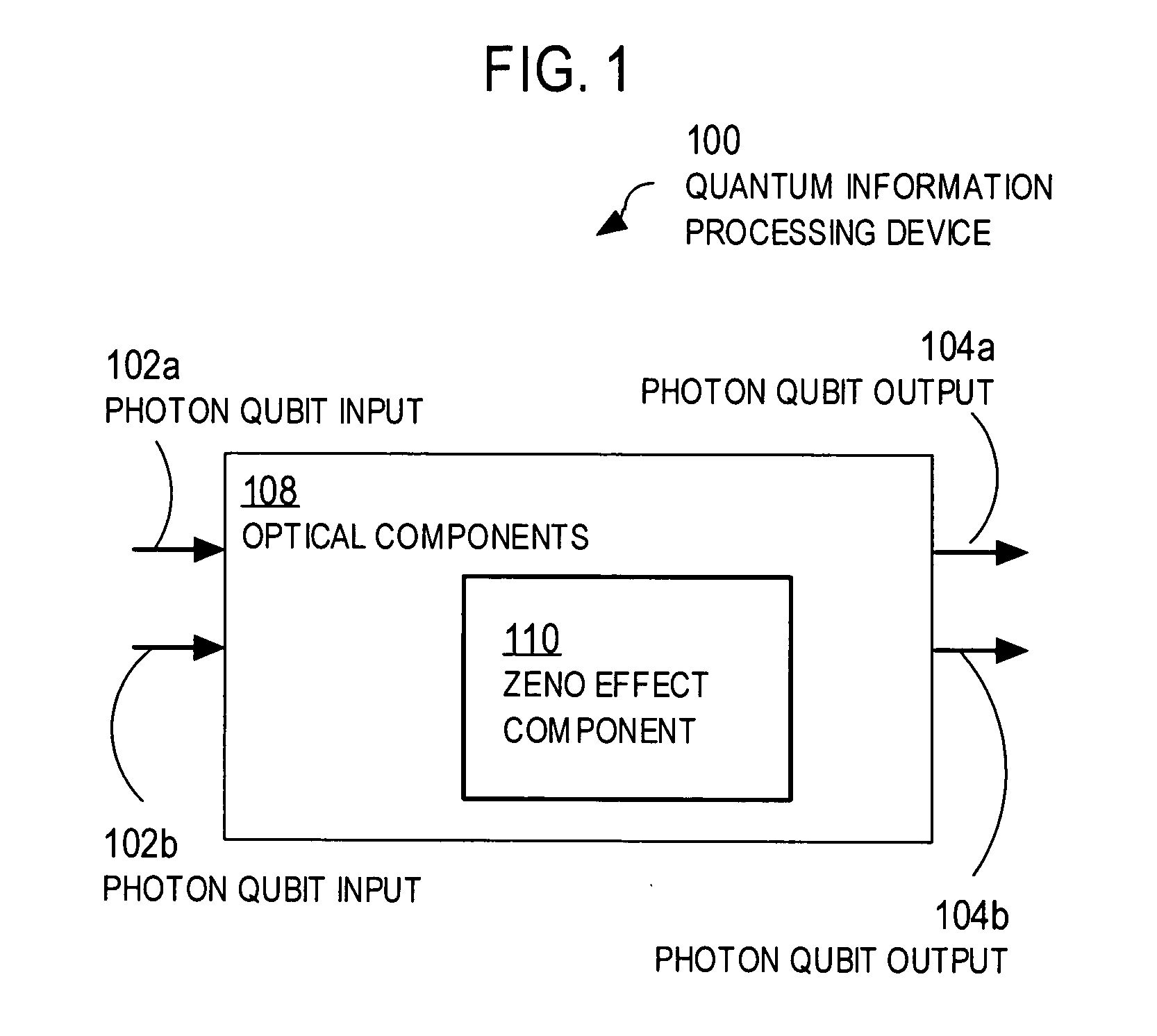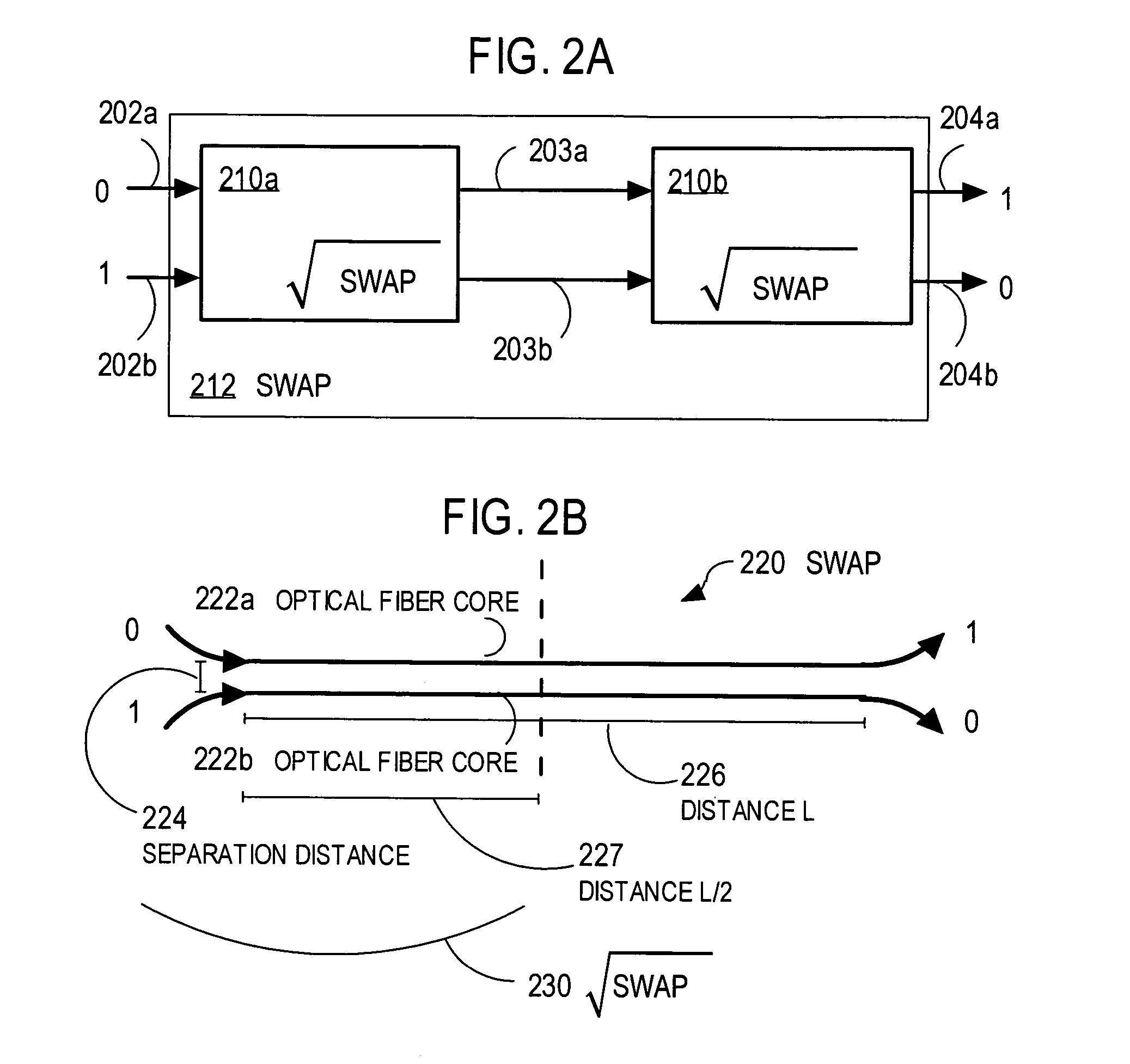Techniques for quantum processing with photons and the Zeno effect
a quantum processing and photon technology, applied in the field of quantum information processing, can solve the problems of thermally induced phase shift between photons, logical gate based, and quantum logic gates implemented
- Summary
- Abstract
- Description
- Claims
- Application Information
AI Technical Summary
Benefits of technology
Problems solved by technology
Method used
Image
Examples
Embodiment Construction
[0002] This invention was made with Government support under Contract No. DAAD190210069 awarded by the Army Research Office. The Government has certain rights in the invention.
BACKGROUND OF THE INVENTION
[0003] 1. Field of the Invention
[0004] The present invention relates to quantum information processing, and, in particular, to techniques for reducing the complexity of quantum processing on quantum bits (qubits) represented by quantum states of single photons.
[0005] 2. Description of the Related Art
[0006] Information processing using classical computers relies on physical phenomena, such as magnetic fields, voltages, and optical intensity that can be produced and measured in each of two basis states, one basis state representing a zero and another basis state representing a one. Each physical element that can achieve either of these two states represents one binary digit, called a bit. Quantum information processing uses physical elements that exhibit quantum properties that may...
PUM
 Login to View More
Login to View More Abstract
Description
Claims
Application Information
 Login to View More
Login to View More - R&D
- Intellectual Property
- Life Sciences
- Materials
- Tech Scout
- Unparalleled Data Quality
- Higher Quality Content
- 60% Fewer Hallucinations
Browse by: Latest US Patents, China's latest patents, Technical Efficacy Thesaurus, Application Domain, Technology Topic, Popular Technical Reports.
© 2025 PatSnap. All rights reserved.Legal|Privacy policy|Modern Slavery Act Transparency Statement|Sitemap|About US| Contact US: help@patsnap.com



